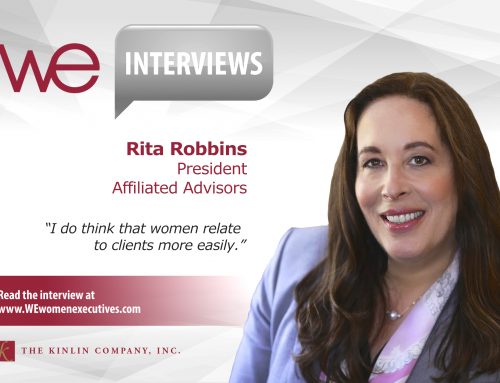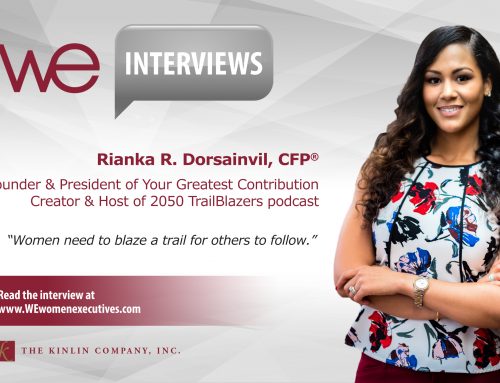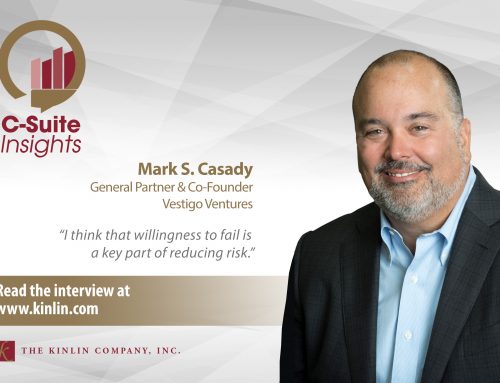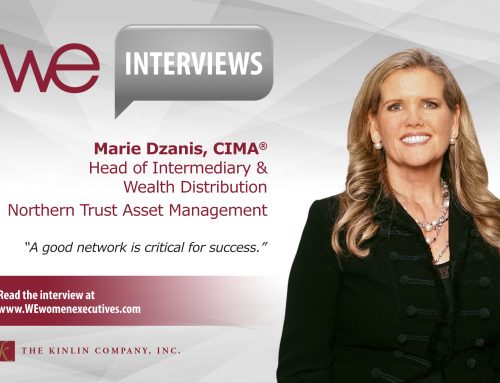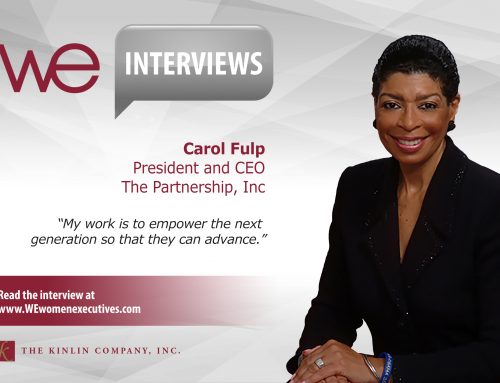 Noreen D. Beaman
Noreen D. Beaman
Chief Executive Officer
Brinker Capital
Noreen D. Beaman, CPA is the Chief Executive Officer of Brinker Capital, an independent, privately owned investment management organization founded in 1987. Comprised of 153 employees, the company manages just over $22 billion dollars and serves approximately 5,000 financial advisors. Active in the investment space for three decades, the company takes great pride in its reputation for excellence in investment management and advisor support. “Our investment process includes a dynamic approach to asset allocation so that we can deliver multi-asset class portfolios that better enable investors to focus on outcomes,” Beaman notes.
I recently had the pleasure of speaking with Beaman about her 30 years in the industry and the lessons she’s learned along the way.
Get business done
Beaman is one of Brinker Capital’s original partners and as such, has held many roles within the company over the years. I suspected that, on more than one occasion, she had found herself to be the only woman in the room. How did you handle those situations, I asked. Was it ever a problem for you, and if so, how did you work around it?
“I came out of public accounting, which was male-dominated at the time, before joining Brinker Capital. At the time, I was one of just two women working at the company. There were eight of us, and our focus was getting the work done. Gender was never an issue with my partners.
“The financial services industry, however, is still challenged by diversity at all levels of the spectrum, and it was in my sales role that I encountered the most challenges around gender. I worked harder to push past that. I’m from the Northeast – I grew up in Hudson County, New Jersey – and as a result, I’m a little scrappy, which was probably helpful. I’m the oldest of four girls, and my father raised us like we were boys. We played sports and just went after it, and as a result, I have never felt uncomfortable speaking up. That said, I am sensitive to my surroundings, by which I mean I am careful not to speak over other professionals around the table. It is important to make sure that everyone’s opinion is heard.”
Be a good listener
Beaman is clearly not one who is easily intimidated, which led me to wonder about her leadership style. How would you characterize your approach to leadership, I queried. Do you think women lead differently than men, and if so, does it help us or hurt us?
“It’s an interesting question because I’m consistently on a journey to become a better leader. I have a professional coach, and one of the things that we spend a lot of time on is the idea that leadership skills are things you need to learn. Women bring some natural abilities to the table, but these skills must be honed. Women tend to be better listeners, and I think we possess a higher level of emotional intelligence. We tend to be better at understanding the different dynamics around the table and really hearing what clients are saying. One of the things I focus on is what clients aren’t saying, as well as what they’re thinking when they leave the room. I pay close attention to those cues.
“I think women have a wonderful advantage from a listening and emotional intelligence perspective, and at the same time, we’re challenged by perhaps taking things too personally about some conversations. So, there are different dynamics of leadership. You need to be collaborative, you’ve got to make sure that everyone at the table has a voice, and you should understand that each person brings her own baggage into the room. My natural inclination is toward collaboration and a focus on the big picture; those are things I tend to enjoy, but every day I’m learning how to be a better leader.”
Seek natural connections
Beaman’s musings on leadership offered a wonderful segue into my next question regarding mentors and sponsors. It sounds like your parents were your first mentors, but were there others who mentored or sponsored you early in your career or even mid-career?
“I’ve discovered that as you get older, you become more appreciative of the people that have been kind to you in your career. Although I think the concept of formal mentorship or sponsorship has gotten a bit overblown, I will say that the CFO of Mutual Benefit Capital Company was very, very kind to me when I came out of public accounting and went to work for Mutual Benefit. He helped me move from a public accounting role into an accounting role within a corporation – there are many things I do today that I learned when I worked for him.
“I also have been fortunate here at Brinker Capital. Our founder, Chuck Widger, took a chance on me, and when the company went private in 1991, I worked from home, at a time when there really was no technology to support that. Chuck is very generous, but he’s tough-minded and focused on the job. He saw that I had talent and he wanted to support that and help me as I tried different roles. Gender wasn’t an issue; I had a flexible work schedule, but I had to get the work done. John Coyne and Greg Vradenburg, the other original partners of the company, were also huge supporters and very helpful when I transitioned into a sales role.
“I was in sales for six years, working with financial advisors – Chuck pushed me in that direction – and honestly, it was very much out of my comfort zone. But I could never be the CEO today if I didn’t understand how our products truly affected the advisors and the end investor clients. It was a very positive learning experience. When I decided that I wanted a change, Chuck created another opportunity at the company for me to build product. So, I’ve been very fortunate to be a part of an organization that creates natural mentorships and really helped me in terms of my professional development.”
Are you currently either mentoring or sponsoring anybody right now?
“I’m a natural person for a sponsorship. I’m one of those people who walks around, sees talent in someone, and taps the person on the shoulder. I like to advocate and then support the senior leadership here as they advocate on behalf of their talent, because that’s how I was brought along. It’s the pay it forward mentality. I do have two outside mentees, one I’m working with through the Money Management Institute and another I’ve connected with through the Envestnet Women in Wealth Management. I’ve enjoyed getting to know one young woman and look forward to meeting the other one. Last year, I was a mentor for a young gentleman. We had wonderful conversations around the marketplace. I truly love to hear about their journey as they continue to develop in their careers.
“I believe if we need this much mentorship, then we really need to be investing in human resources. I think professionals who are properly trained to provide career guidance and professional development may better serve our mentees. I don’t understand this phenomenon whereby strangers reach out to professionals for mentorship. Without knowing someone, you may get very bad advice. I think we have identified a need for investing in human resources and developing our intellectual capital.”
Encourage workplace diversity
Having gained a sense of Beaman’s background and her feelings regarding mentors and sponsors, I decided to take the conversation in a completely different direction. Over the past several months, I told her, I’ve been approached by three different firms indicating they have a real need for female wealth advisors. What’s going on?
“Unfortunately, there is a shortage of talent, and given the amount of time and experience it takes to be a good wealth advisor, we really should have addressed this problem ten years ago. The next generation of professionals is coming along, getting their CFPs and doing the proper training to be part of a wealth management team, but they’re still growing into their roles. The challenge right now is that consumers are looking for good financial advisors who look more like them, and not only do we have a shortage of female wealth advisors, but also a shortage in terms of other types of diversity as well. We need to understand where consumers are coming from and create teams that more accurately reflect the clients they serve, and unfortunately there’s a shortage of available talent.”
Acknowledge the individual
Our discussion on talent offered a natural segue into my next question for Beaman. In a recent InvestmentNews interview, Beaman asserted that one way a company’s culture is assessed is by measuring outcomes like the representation of women and their progress through the company. I was eager to hear Beaman’s assessment of Brinker Capital’s progress in this regard. How is Brinker Capital addressing the issue, and what is the firm doing to ensure that women succeed?
“There are two things. One, we have always been gender-neutral regarding compensation. We use outside benchmarks for jobs – we pay for the job, and it doesn’t matter if you’re a male or female. Two, we emphasize flexibility in our workforce, and that to me is not a female issue, it’s a family issue. Everyone has someone in their life – a friend, a pet, children, parents – that defines their family. We offer employees a flexible work environment that allows them to support their family and their business requirements. We offer paternity leave as well as maternity leave, and we always have.
“Our culture is built on service to our clients and each other. It is how our team lives their lives at work. We support strong diversity from the senior level down – it’s a natural part of our recruiting process. We do not have the level of diversity here that I would like, but we’re working on it.”
Invest in yourself
As our interview came to a close, I asked Beaman what has become my favorite question. What tips would you give to senior level women looking to take their careers to the next level?
- Invest in a professional coach or take leadership classes. We all bring skills to the table, but you need to hone those skills and learn new ways to deliver your authentic self to the job. It can be uncomfortable at times, but it’s important. Whatever role you play in an organization, you’re going to have to lean on skillsets you don’t naturally have to be successful.
- Be the CEO of your career. If you want to be in a different role, you need to figure out what you need to do to get there.
- Challenge yourself to go outside your comfort zone and be a little fearless.

